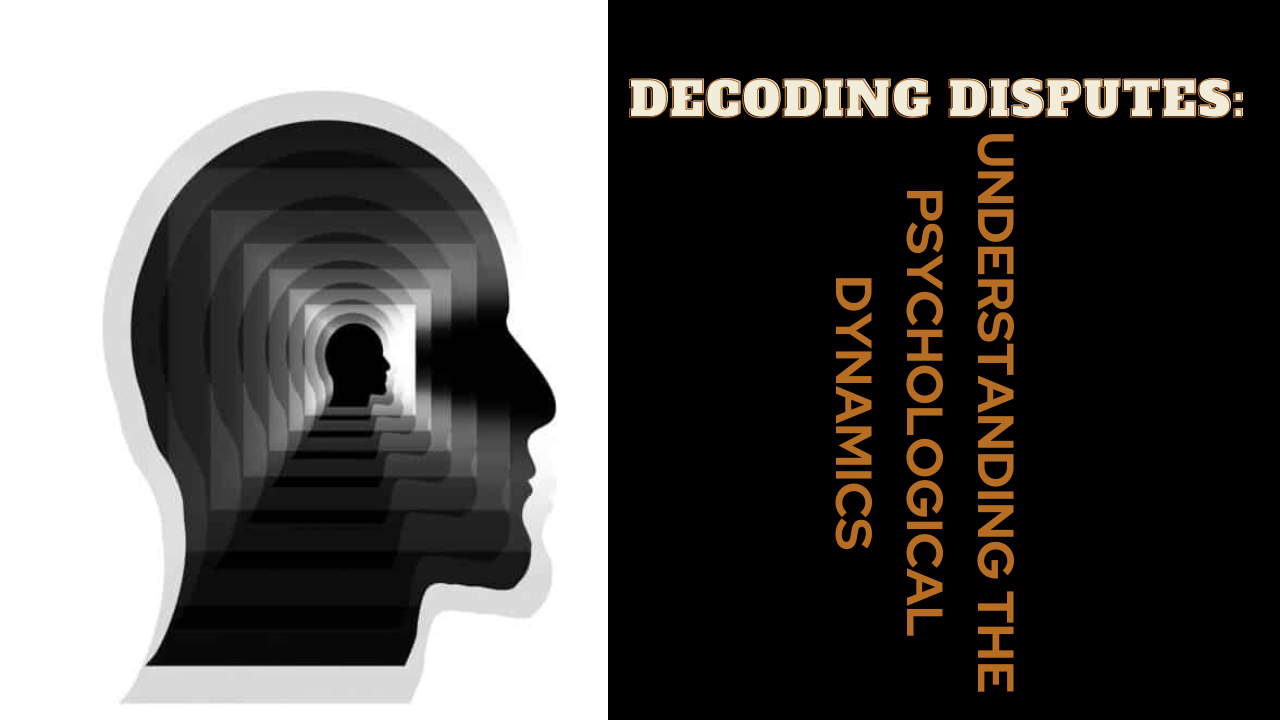Introduction:
Legal disputes are complex interactions shaped not only by legal principles and evidence but also by the intricate workings of the human psyche. From the parties involved in the dispute to the lawyers representing them and the jurors deciding their fate, psychological factors play a significant role in shaping the course and outcome of legal proceedings. In this article, we explore the multifaceted relationship between human psychology and legal disputes, examining how the psyche of the parties, as well as legal professionals, influences conflict escalation and resolution.
The Role of Human Nature in Legal Disputes:
Human nature encompasses a broad spectrum of traits, tendencies, and behavioral patterns that influence how individuals perceive and respond to conflict. In the context of legal disputes, inherent traits such as temperament, personality, and cognitive biases can significantly impact the dynamics of the conflict. For example, individuals prone to assertive or aggressive behavior may be more inclined to escalate disputes, while those with a more conciliatory disposition may seek to resolve conflicts amicably.
Moreover, deeply ingrained psychological factors such as ego, pride, and the desire for validation can exacerbate conflict and impede resolution efforts. Parties involved in legal disputes often become emotionally invested in proving their point or seeking retribution, leading to heightened tensions and prolonged litigation.
The Influence of Legal Professionals on Conflict Escalation:
Legal professionals, including lawyers and jurors, play a pivotal role in shaping the trajectory of legal disputes. Lawyers’ advocacy strategies, negotiation tactics, and courtroom demeanor can either facilitate resolution or escalate conflicts further. Aggressive litigation tactics, adversarial language, and confrontational behavior may exacerbate animosity between parties and hinder efforts to reach a settlement.
Similarly, jurors’ cognitive biases, preconceptions, and subjective interpretations of evidence can sway trial outcomes and exacerbate conflict dynamics. Biases such as confirmation bias and anchoring bias may cloud jurors’ judgment and undermine the fairness of legal proceedings, leading to contentious verdicts and prolonged disputes.
The Impact of Nature and Nurture on Legal Disputes:
Nature and nurture, referring to both inherent traits and environmental influences, also play a crucial role in shaping individuals’ responses to conflict and engagement with the legal system. Family dynamics, cultural upbringing, socio-economic background, and educational experiences all contribute to individuals’ attitudes toward authority, communication styles, and perceptions of justice.
Individuals raised in environments characterized by conflict avoidance or distrust of authority may be less inclined to seek legal recourse or engage in constructive dialogue with opposing parties. Conversely, those exposed to assertive communication styles or adversarial family dynamics may adopt confrontational approaches to dispute resolution, exacerbating tensions and impeding resolution efforts.
Conclusion:
In conclusion, legal disputes are inherently linked to the psyche of the parties involved, as well as the psychological dynamics of legal professionals and decision-makers. Human nature, shaped by inherent traits and tendencies, influences individuals’ behaviors and attitudes toward conflict, while environmental factors such as upbringing and life experiences further mold their responses to legal disputes.
Moreover, the actions and strategies employed by legal professionals can either facilitate resolution or exacerbate tensions, underscoring the importance of ethical advocacy, effective communication, and a nuanced understanding of psychological dynamics in legal practice. By recognizing the intricate interplay of human nature, legal professionals’ behavior, and environmental influences, stakeholders can work towards fostering constructive dialogue, promoting empathy, and facilitating fair and equitable resolution of legal disputes.


